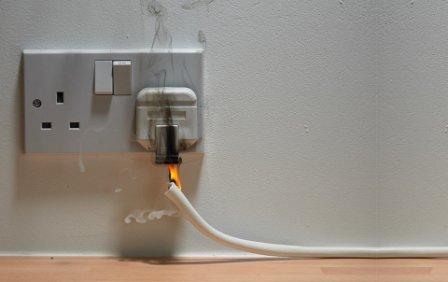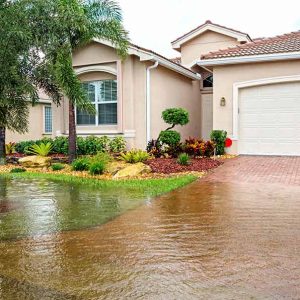Here we have compiled a list of the 5 most common causes of House Fires and how you can prevent them.
- One of the Top Causes of House Fires: Faulty wiring and outlets.
- Check for indications of electrical cord fraying throughout your house and substitute all frayed cables.
- Do not pinch or cover electrical wires with products like rugs.
- Be conscious of your home’s electrical system capability. Do not surcharge the systems. If you have concerns about the electrical scheme in your house, you might want to consult a certified electrician.
- Understand the distinction between surge guards and energy strips — both enable you to plug into various digital systems, but only the surge guard will assist safeguard these equipments from an energy spike. Use surge protectors to safeguard precious digital equipment like pcs and televisions.
- Lack of care in the kitchen.
- Never leave unattended pots or pans on your stove.
- Keep a kitchen fire extinguisher ready for use and understand how to use it.
- Keep the stove tidy. The food splatter or grease may subsequently ignite when the stove or oven is switched on for cooking.
- Read more advice to assist avoid the burning of fires and what to do when it occurs.
- Another prevalent cause of house fires is Dryer Clothing.
- Use the suggested duct material to obey the directions in the manufacturer’s setup guidelines when installing your own dryer outlet. If you’re not sure how to correctly manage the ventilation, consider recruiting a specialist.
- Clean the dryer vent on regular basis.
- Clean the lint filter after every load.
- Also, Lint can collect under and behind your dryer, so don’t forget to wash those regions as well.
- Alternative heating sources can also generate a fire risk.
- Avoid using an older space heater as it may not have appropriate security characteristics compared to modern systems. When buying a new room heater, make sure that UL is mentioned and pay attention to the security characteristics.
- Do not position a heater near furnishings, walls or other items that might readily catch flames.
- If you intend to add an alternative heating scheme, such as a timber oven or pellet stove, follow the manufacturer’s directions. If you are uncertain how to correctly install the scheme, consider recruiting a specialist installer.
- Before installing a wood or pellet stove, verify that it complies with the laws of your state and municipality.
- Dirty Chimneys also creates fire hazard.
- A fireplace sweep licensed by the Chimney Safety Institute of America (CSIA) inspects your fireplace annually. Have a specialist clean and repair the fireplace as necessary, particularly if you use it commonly before the cold months.
- Use only seasoned wood. Never use for burning green or moist wood.
- Never burn cardboard boxes in your fireplace, wrap paper, trash or trees — all can spark fires in your chimney.




